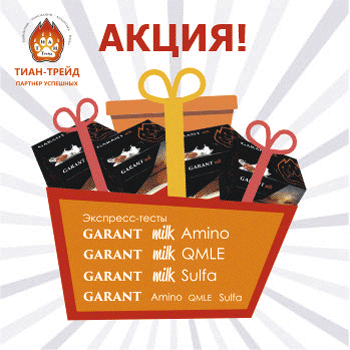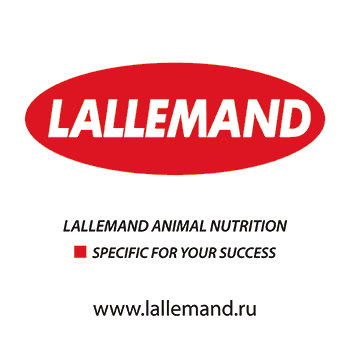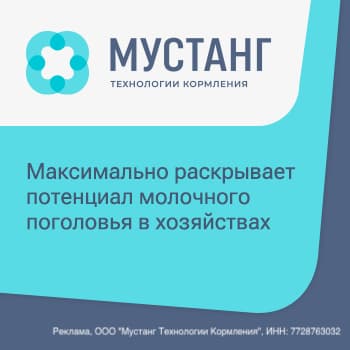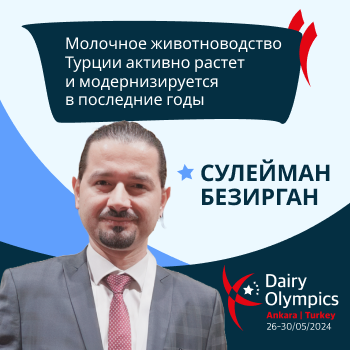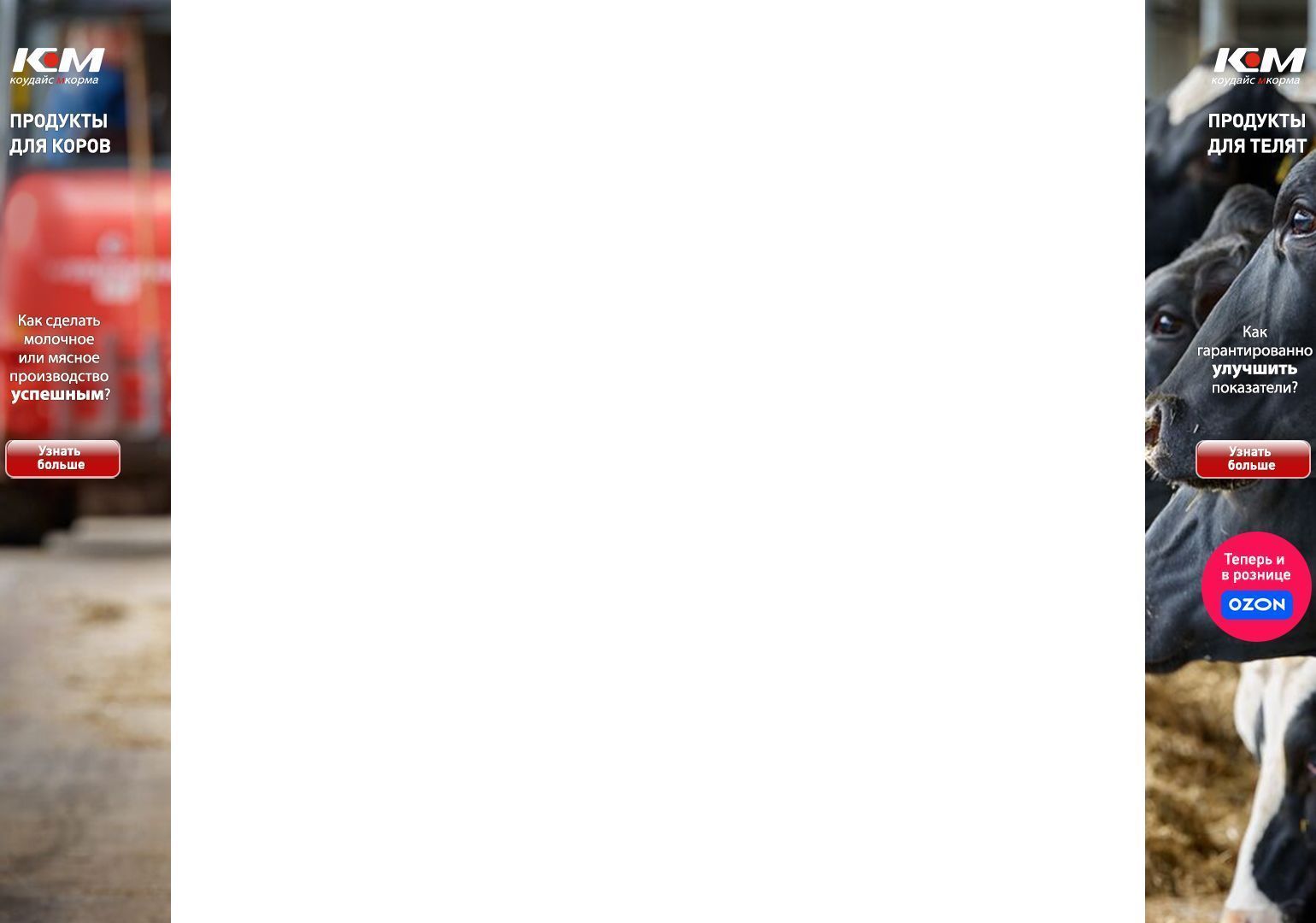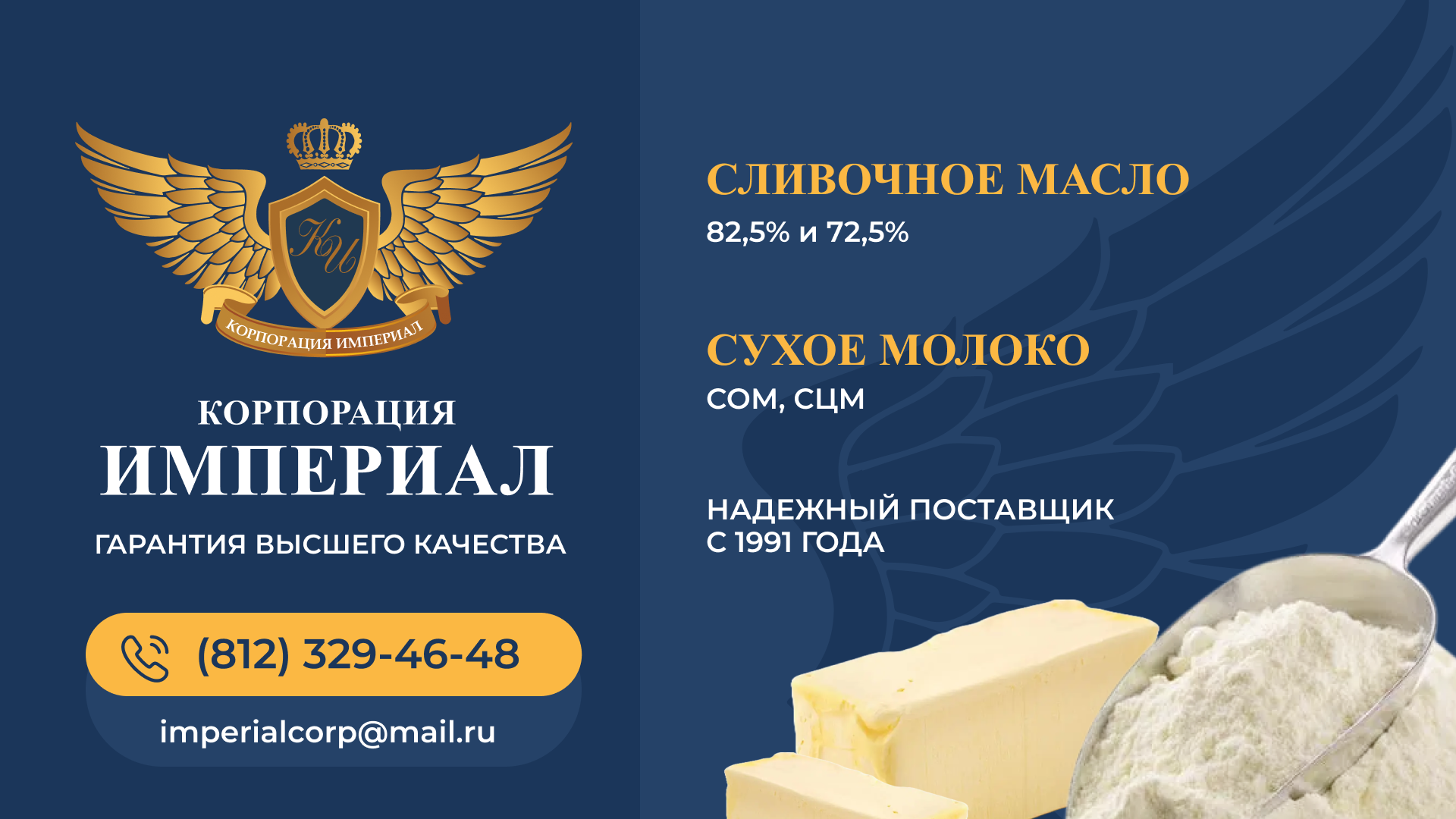The fight against counterfeit
Источник: The DairyNews
The volume of counterfeit products is growing on the Russian dairy market. The Rospotrebnadzor proposes to toughen punishment for counterfeit up to two years of corrective labor. Is this measure justified? How to fight against counterfeit? These and other questions are answered by the market participants and experts interviewed by The DairyNews.
Counterfeit – is there a place for it?
According to Rospotrebnadzor on October 2016 the proportion of counterfeit products among milk and cheese ranged from 45% to 73%. As a result, in 9 months of 2016, Rospotrebnadzor has removed from sale 60 tons of adulterated dairy products. According to authorities, 25% of adulterated dairy products are revealed by catering service in preschool and other educational organizations, medical organizations, health institutions and social service organizations.
The main violation is the replacement of milk fat with vegetable, often palm oil. According to the forecast of Aleksey Udovenko, regional representative of "The Malaysian Council of palm oil producers", the volume of palm oil imports to Russia by the end of 2016 will amount to 800-850 thousand tons, while in 2015 it amounted to 888 thousand tons.
Under the conditions of price growth for raw milk the production of counterfeit products becomes the only survival strategy for a number of processors. This is the unanimous consensus of the experts interviewed by The DairyNews. "There is an imbalance: producers of raw milk consider raw milk prices to be low and want to increase them, while processors can't afford to raise their prices. As a result, they are forced to reduce the cost and manufacture of counterfeit is one of the ways to achieve it," said Mikhail Mishchenko, the Director of "The Russian Dairy Research Center" in comments to The DairyNews.
The production of counterfeit supports the shift of the demand for dairy products into low-price segment due to the decline of real incomes. This shift was registered last autumn – according to Nielsen 27% of consumers in 3 months switched to cheaper brands of dairy products (cheeses were not included the study). Alexander Brazhko, Executive Director of "The Association of processors on counteraction of dairy products falsification", in his comments to The DairyNews noted low consumer culture of the Russians.
"In such a situation, many companies have followed the way of replacement of milk fat with vegetable oil, satisfying, thus, the market demand for a large volume of cheap dairy products," concluded Marina Petrova, General Director of Petrova Five Consulting
In favor of retail?
The proportion of retail network in the total volume of retail trade is constantly growing. "The share of FMCG chains in the retail trade turnover of the Russian Federation in 2016 reached 28%, while in 2015 this figure was 25.8 per cent. If we talk about the top 10 largest FMCG chains, in 2016 they accounted for about 16% of the retail trade," said Anna Sinyavskaya, a partner of the Research Agency M. A. Research in the comments toThe DairyNews. Thus, the major chain retailers have a significant impact on the range and prices of milk processors.
Some experts interviewed by The DairyNews, noted that the chains also have the demand for counterfeit products. "Often retail chains become an insurmountable barrier between the producer and the end consumer, both in one and in the other direction. Consumers want to buy quality products at a reasonable price, but often can't do that, because their resources are limited. Producers want to bring natural products to the end consumer, but can't always make it through the retail network, because retailers have certain requirements: they want to get the maximum discount, and also to expose the products with the longest shelf life. As a result, some manufacturers are starting to produce less natural products in favor of retailers," - said Mikhail Mishchenko. "In the HoReCa segment mozzarella has been made of analog cheese for a long time and cottage cheese is purchased at a price not more than 100 rubles per kilogram," - said the expert.
The lack of effective measures to counter the emergence of counterfeit products on the shelf was told about by Alexander Brazhko. "The state authorities of subjects of the Russian Federation have not yet implemented effective tools to prevent the emergence of counterfeit products in circulation. There is no monitoring of the presence of adulterated dairy products in the retail network. Basically, the work is carried out upon receipt of application from the consumer or TV shows", - said Mr. Brazhko.
Two years of corrective labour
The Deputy Head of Rosselkhoznadzor Nikolai Vlasov, speaking about the problem of falsification on the Russian dairy market, points to Belarusian companies, accusing them of "greed" in connection with the use of milk powder.
Falsification in the dairy market worries FAS as well. Deputy Head of FAS Andrey Tsyganov, who was quoted by Rambler News, reported that the service is "investigating this issue". However, at the time of publication of the material specific measures of the FAS weren't made public.
At the end of last year, Rospotrebnadzor has developed a draft law, which implies punishment up to two years of corrective labour for the manufacture, import and sale of counterfeit products, if it's done by a group of people upon a preliminary collusion.
Experts interviewed by The DairyNews, differ in opinion regarding the appropriateness of this measure. "I believe that for economic crimes companies must be subjected to economic penalties. There are the substantial fines or prohibition of business for this purpose. The criminal prosecution in this case, in my opinion, is unnecessary", - said Marina Petrova. The need for economic punishment in the absence of a direct threat to the health of consumers was stated by Vladimir Surovtsev, head of Department of economic and organizational problems of development of branches of agriculture, associate Professor of Federal state budgetary scientific institution « North-West Research Institute of Economics and organization of agriculture» in the comments to The DairyNews.
The same opinion is shared by Alexey Udovenko. "With regard to the draft law to toughen penalties for counterfeit up to two years of corrective labor, in my opinion, penalties would be enough in this situation. It is necessary to fight against counterfeit systematically, and it is very important to develop a method of product control", - said Mr. Udovenko.
According to Alexander Brazhko, tougher penalties for counterfeit may be appropriate in relation to distributors and retailers. "After a few "loud" processes network retail will cease to enjoy butter at a price of 150 rubles/kg and will be forced to increase sales of "fair" products," noted Mr. Brazhko.
The head of Department of regulation of agricultural markets Vladimir Volik in an interview with Milknews noted that such a punishment is adequate from the point of view of possible consequences for children's health. "When we talk about nutrition in kindergartens and schools we need to be strict. And although it seems that it does not directly stimulate demand, the market is cleared, and then the demand for quality products increases, which stimulates the demand for raw materials", - said Vladimir Volik.
Who is responsible?
Speaking about the fight against counterfeit, part of the experts interviewed by The DairyNews pointed out the need to strengthen control in retail. "We should create a situation where the trading organizations will have to establish strict incoming control of products sold, and laid them responsible for the counterfeit on the shelves. It is advisable to make fines dependent on the volume of produced and sold products, as the more volume of sales is, the more profit from the production and sale of counterfeit they get, but also there are more opportunities to carry out the incoming control," - said Vladimir Surovtsev.
Mikhail Lyasko, General Director of LLC "Arla foods" noted the expediency of application of penalties. "Unfortunately, I don't see any other way except for a significant increase of fines not only for production but also for the sale of counterfeits throughout the supply chain: manufacturer, distributor, retailer, catering sector," said Mr. Lyasko in the comments to The DairyNews.
Experts also point to the need to reduce the cost of dairy production. "The only real way to combat counterfeiting of dairy products is increase of the volume of raw milk production. This will help to reduce the average market cost of raw materials, and, consequently, of the finished product. Sufficient amount of cheap raw milk will make the falsification of dairy products impractical," said Marina Petrova.
According to Alexander Brazhko, existing legal and regulatory framework to combat counterfeit is enough. However, according to him, the officials lack appropriate competencies. "The actions of state authorities without the support of the institutions of civil society are doomed to failure. Support of civil society organizations for the protection of consumer rights is still not systematic. Mostly public activists are engaged in combating counterfeiting at their own expense and on a voluntary basis. Sectoral business associations can be included in this work depriving of the "voice right" their members, convicted of counterfeit circulation by introducing a system of monitoring and self-control," added Mr. Brazhko.
Thus, to fight against counterfeit on the dairy market with spot measures is useless. This requires a comprehensive approach that includes adequate control on all links in the trading chain, and state support of producers of raw milk, as well as measures to stimulate consumer demand.
Read full article in Russian on DairyNews.ru
Популярные темы
05.04.2024
В России резко сократилось количество импортных ветпрепаратов. Часть хозяйств используют запасы, другие переходят на отечественные аналоги. Российские производители наращивают производство и выводят на рынок новые препараты. Участники отрасли поделились с The DairyNews мнениями о текущей ситуации с ветпрепаратами и перспективах импортозамещения в этом сегменте.
Читать полностью
15.04.2024
Dairy Index DIA вырос на шесть копеек
01.04.2024
Dairy Index DIA вырос на три копейки

